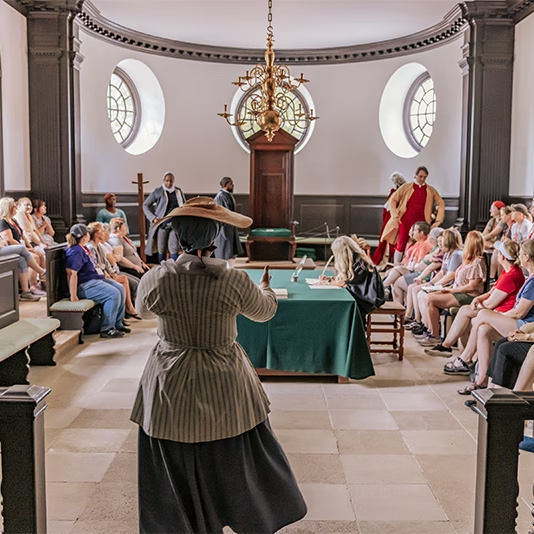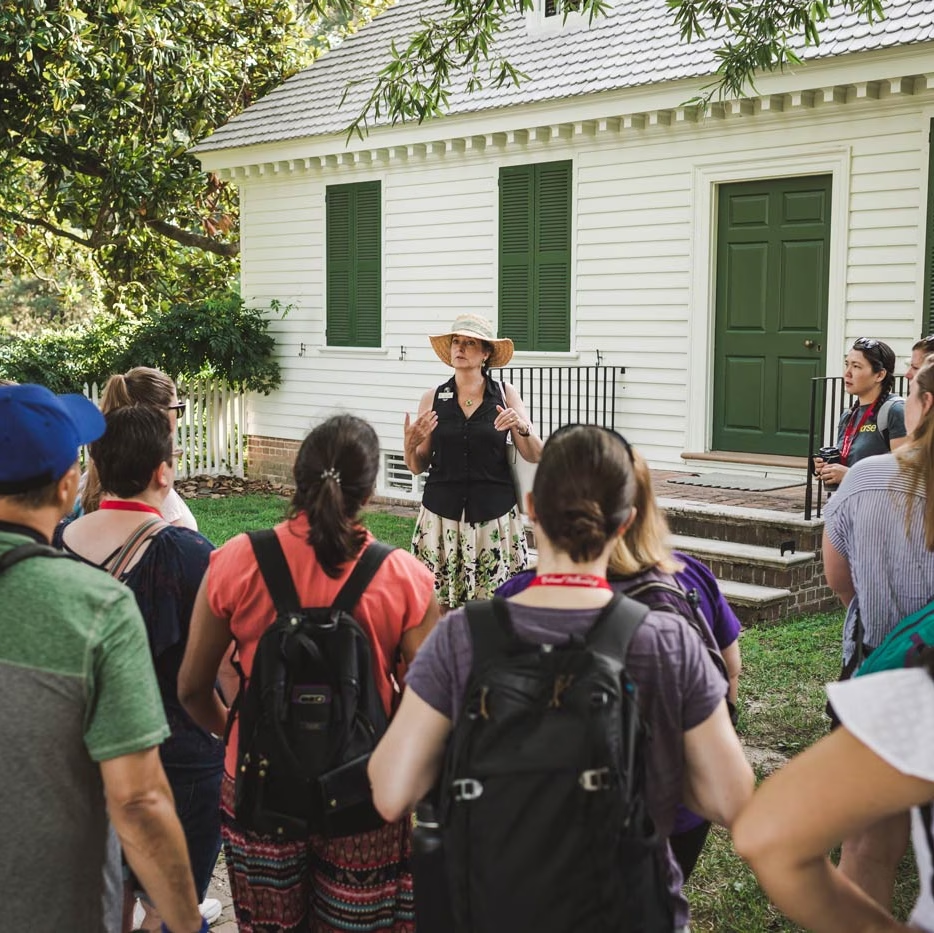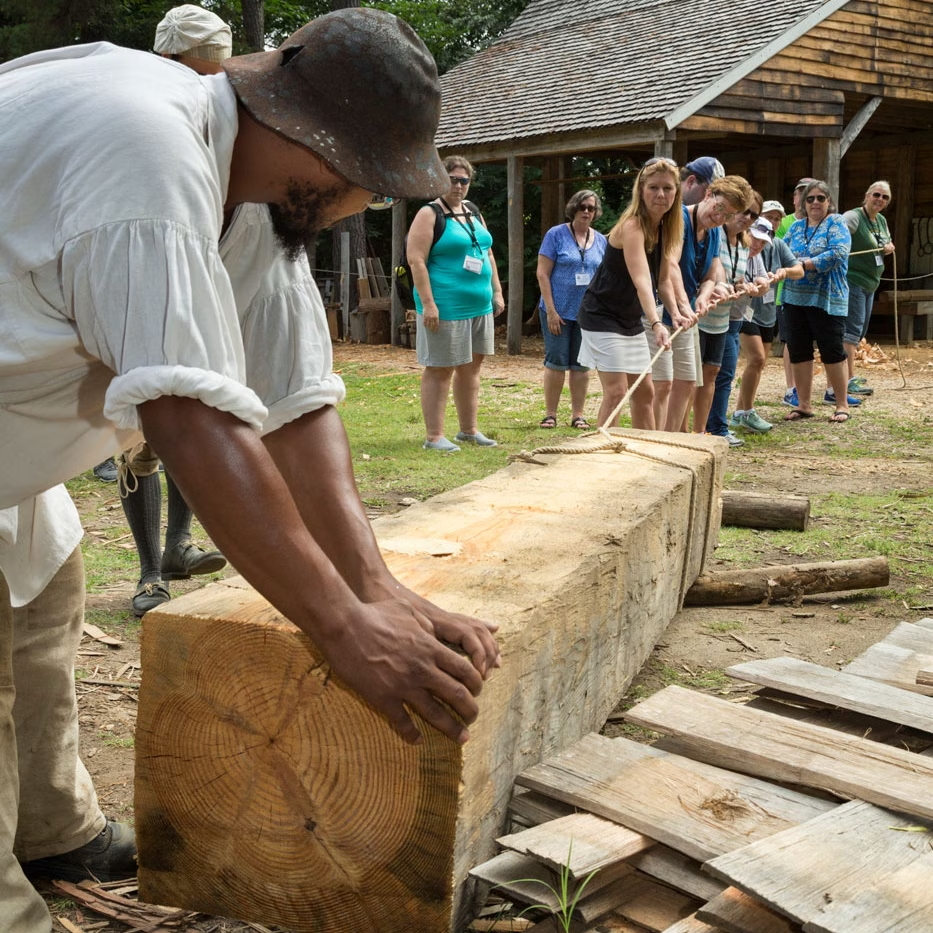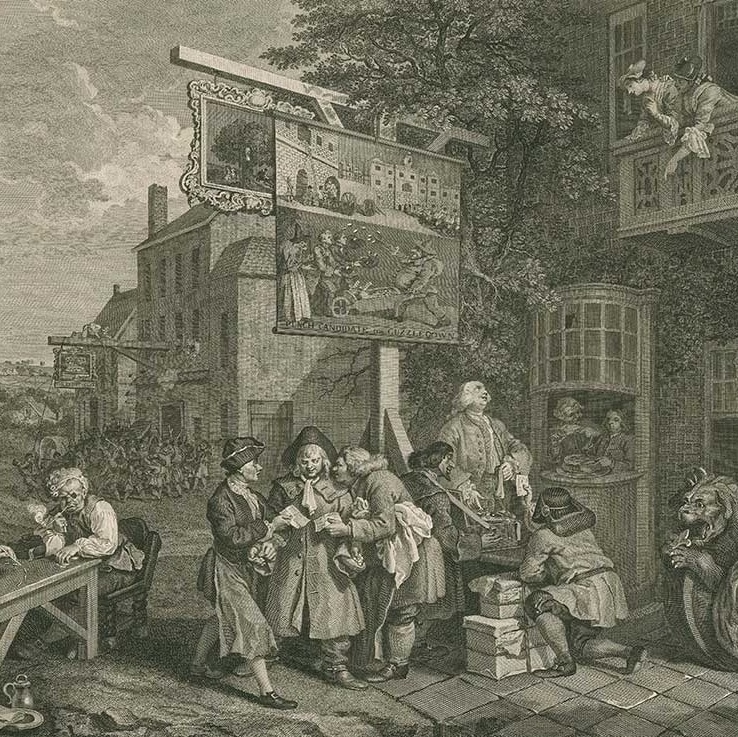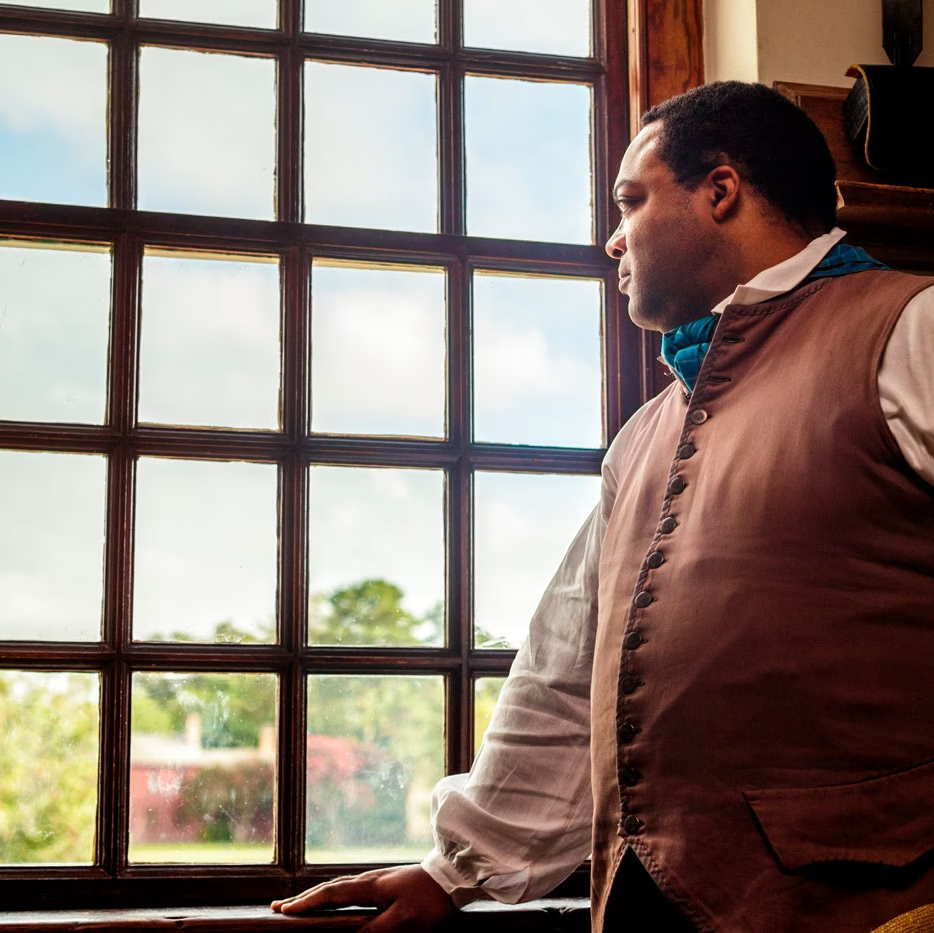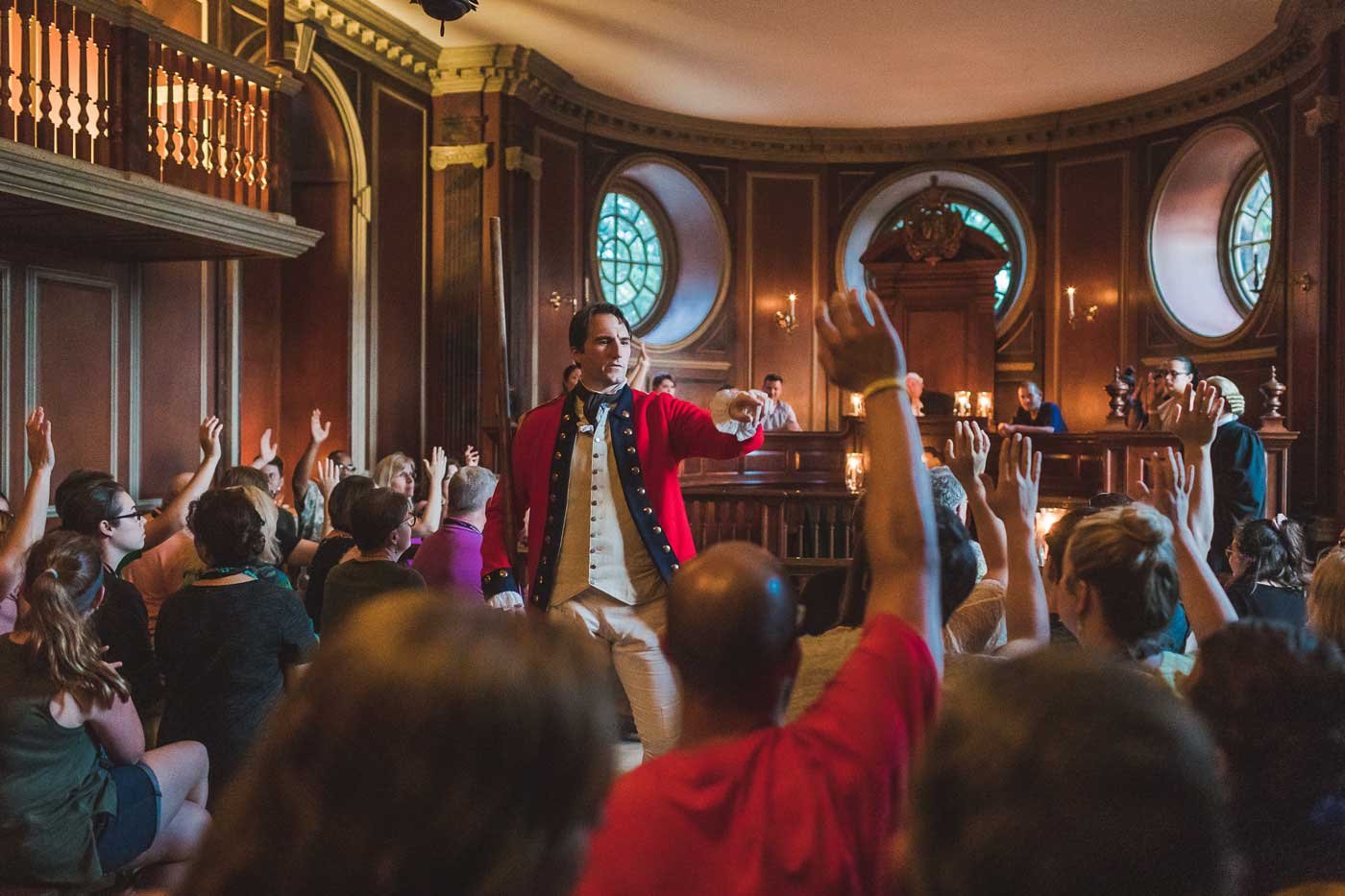
Teacher Institute Programs
On This page
Online Courses
Join Colonial Williamsburg for online courses where teachers can engage with Teacher Institute staff, hear from experts in the field, explore digital resources, and network with fellow educators. These chats will take place in Zoom. Registration is free and on a first-come, first-served basis. Participants will receive a certificate for 1.5 professional development hours for attending this session. Please contact teacherdevelopment@cwf.org with any questions.
Clementina Rind’s Revolutionary Press
February 11, 2025 | 7 p.m. EDT
Debunking Myths and Misunderstandings with Martha Washington
March 4, 2025 | 7 p.m. EDT
The Gunpowder Incident
April 8, 2025 | 7 p.m. EDT
Teaching the Louisiana Purchase through Primary Sources
April 17, 2025 | 7 p.m. EDT
Espionage in the American Revolution
May 1, 2025 | 7 p.m. EDT
Jefferson, Piracy, and War in Early America
May 20, 2025 | 7 p.m. EDT
Onsite Residential
Becoming We the People
Teaching US History to 1787 (Elementary)
June 8-13, 2025
July 6-11, 2025
July 20-25, 2025
July 27-August 1, 2025
In 1787, 11 years after the Declaration of Independence stated that “all men are created equal”, the U.S. Constitution established a new form of government for “we the people of the United States.” How did thirteen distinct colonies come together to form one nation? Who did the phrase “we the people” refer to when it was written in 1787? What does it mean to be a citizen of the United States? Participants will explore these questions by learning about the daily life in the American colonies from the period of British colonization through the American Revolution. During this course, elementary teachers will be immersed in hands-on activities, primary sources, and teaching strategies that highlight the stories of the diverse peoples living in Virginia and the American colonies during this period.
Forming a More Perfect Union
Teaching US History to 1870 (Secondary)
June 8-13, 2025
June 22-27, 2025
July 6-11, 2025
July 27-August 1, 2025
The founding documents of the United States established the ideals at the core of our nation and government. From the inception of the United States, however, our nation has imperfectly lived up to these ideals. What are the founding ideals of the United States? How has the United States lived up to and failed to live up to these ideals? What does it mean to “form a more perfect union”? Participants will explore these questions by learning about the paradoxes at the heart of the American Revolution and how different groups of people have worked to more fully live up to the promises of the founding generation. Through inquiry-based analysis of primary sources, middle and high school teachers will examine how our founding ideals inspired citizens to shape and change our nation from the first American colonies through the Civil War.
STEAM to the Past, Design for the Future
Intended for educators in grades 3-8
July 13-18, 2025
June 27-August 1, 2025
This seminar explores the interdisciplinary links between eighteenth-century history and STEAM in the daily lives of American Indians, British colonists, and free and enslaved Black individuals. Participants will compare the experiences of the three diverse groups of people, specifically applied to STEAM—the sciences, technology, engineering, art, and math. Participants will engage with historical interpreters, investigate applied science principles such as design and engineering, chemistry, transportation, and energy, and combine these experiences into dynamic classroom lesson ideas that incorporate primary sources, collaboration, inquiry, and problem solving.
Agents of Change
Civic Engagement, Past and Present
Intended for educators in grades 3–8
June 22-27, 2025
July 20-25, 2025
July 27-August 1, 2025
This seminar explores the stories of civic leaders, civic participation, and civil disobedience across diverse perspectives in eighteenth-century Virginia. Participants will engage with historical interpreters, analyze primary sources, and gain teaching strategies that connect the past to the present in meaningful ways to inspire civic action.
Resilience, Agency, and Resistance
The African American Experience
Intended for educators in grades 3–8
June 15-20, 2025
This seminar explores the lives, roles, and perspectives of free and enslaved Black people in the Americas. Participants will pursue a deeper understanding of the diversity of the experiences of free and enslaved Black individuals from the period of British Colonization through the American Revolution. Participants will investigate primary sources, interact with interpreters and tradespeople, and learn how to use culturally responsive teaching strategies to effectively incorporate diverse narratives into curriculum.
Plan Your Onsite Experience
Workshops
For Elementary and Secondary Teachers
In this one-day workshop in your district, a Colonial Williamsburg educator inspires teachers with interactive, media-rich strategies that link American history and active 21st-century civic engagement.

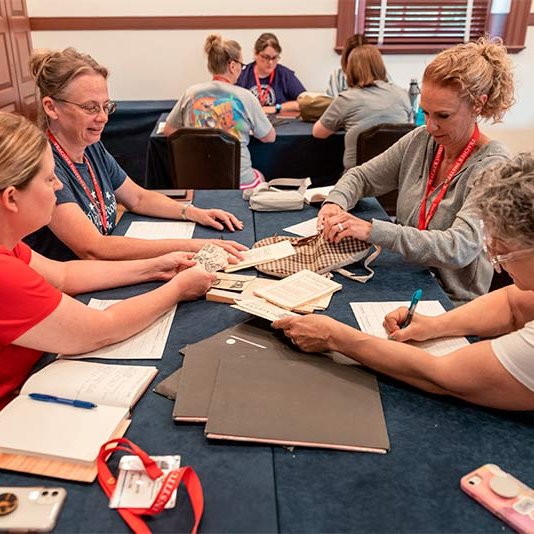
Customized Group Workshops in Williamsburg
The Colonial Williamsburg Professional Development staff can customize arrangements for your teacher group's (of 15 or more) visit to Colonial Williamsburg. Not only can we help you with the educational portion of your visit, but we can also make arrangements for Colonial Williamsburg lodging, meals, and local transportation. For more information or a price quotation on a customized teacher professional development program, please email teacherdevelopment@cwf.org.

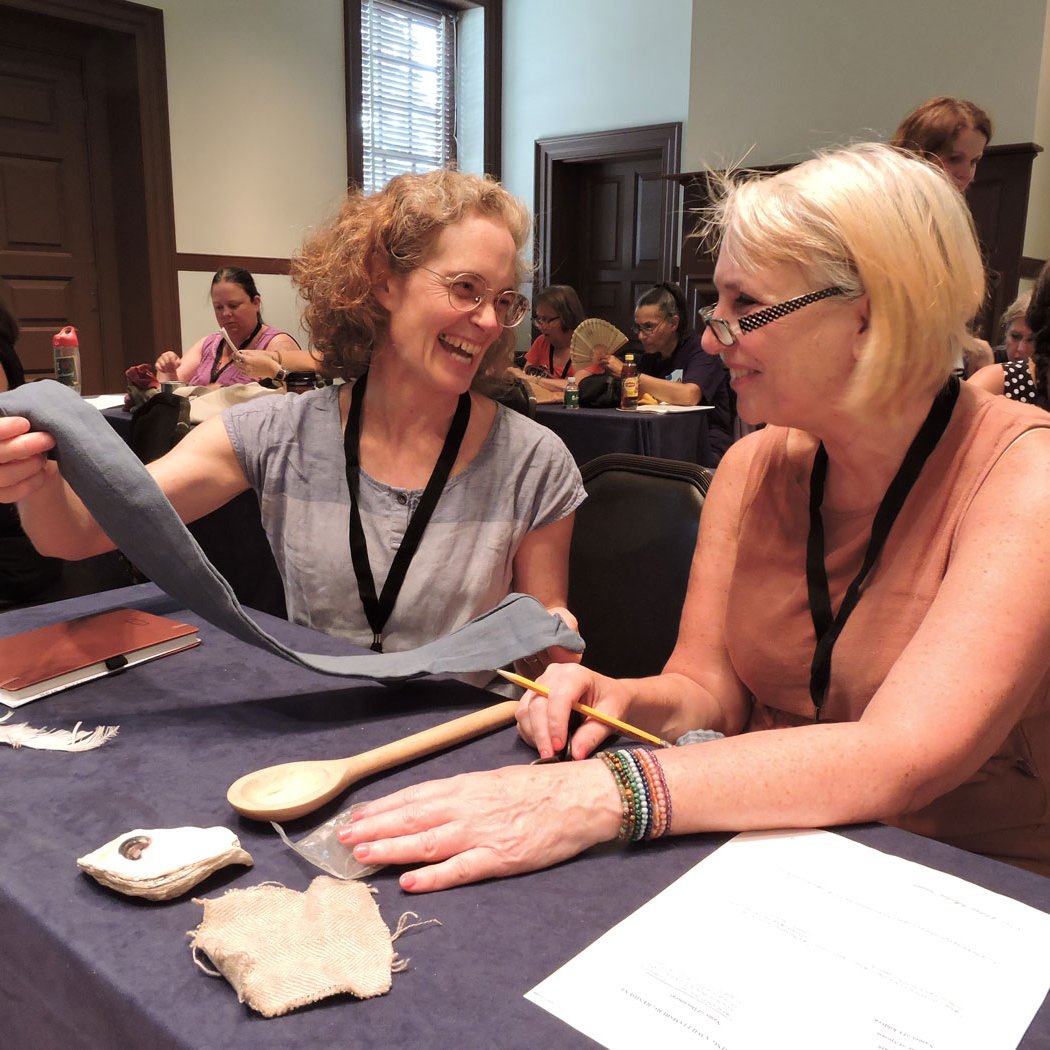
Stay in Touch
Subscribe Today
Join our mailing lists to stay informed about Colonial Williamsburg instructional resources, teacher professional development opportunities, and scholarships.
